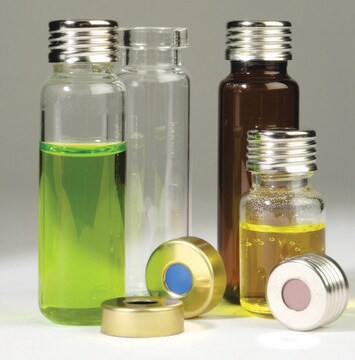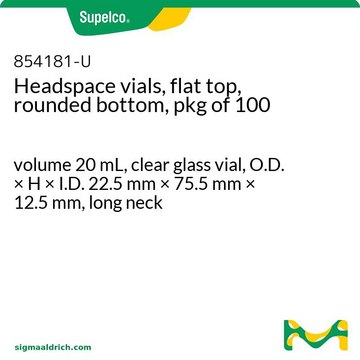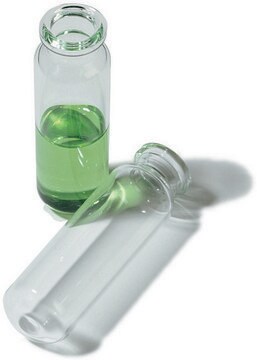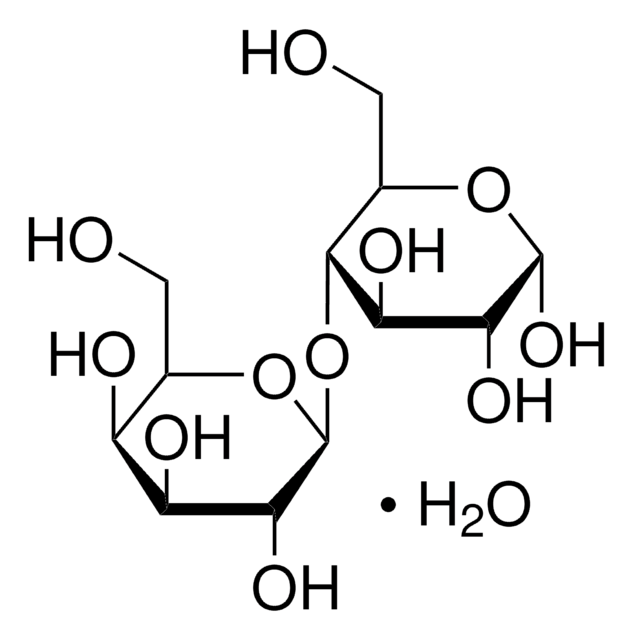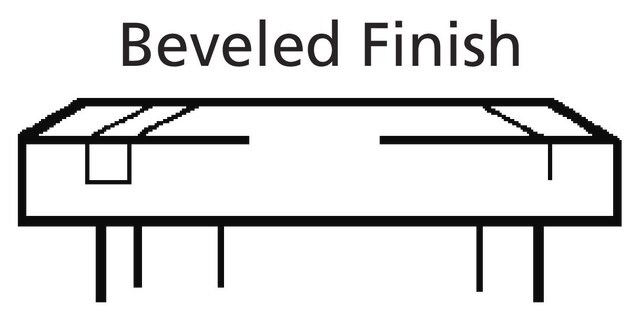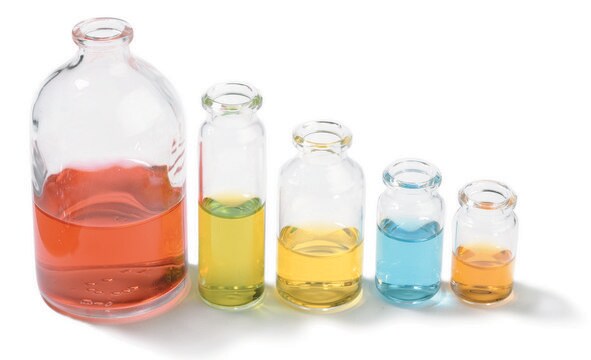SU860097
Flacons Headspace, haut à vis, fond arondi (flacon seul)
volume 20 mL, clear glass vial, thread for 18, O.D. × H 22.5 mm × 75.5 mm, pkg of 100 ea
Synonyme(s) :
Screw cap rounded bottom headspace vial
About This Item
Produits recommandés
Matériaux
clear glass vial
round bottom
Caractéristiques
closure type screw top vial
Conditionnement
pkg of 100 ea
D.E. × H
22.5 mm × 75.5 mm
Volume
20 mL
Raccords
thread for 18
Compatibilité
for use with CTC PAL (Varian, Gerstel, Atas, Shimadzu)
Vous recherchez des produits similaires ? Visite Guide de comparaison des produits
Description générale
Application
- In the determination of partition coefficient of ethyl acetate in water at 0° C from independent analyses of the total amount of ethyl acetate present in the vial, by automatic equilibrium headspace gas chromatography and vapor phase calibration (VPC).
- It may be used in the analysis of volatile polar residual solvents present in pharmaceutical products, during development and optimisation of headspace SPME method by GC-MS.
- It may also be used in the isotopic analysis of 18O in the leaf water of C3 and C4 grasses, during establishing a grassland signature in veins, as it was found that grasses with different photosynthetic pathway have different interveinal differences.
- It may also find application, in investigating metabolism by Pseudomonas fluorescens of volatile haloaliphatic hydrocarbons like 1,2-dichloroethane and 1,2-dichloropropane, which are some of the major contaminants of underground aquifers.
Produit(s) apparenté(s)
Faites votre choix parmi les versions les plus récentes :
Certificats d'analyse (COA)
Désolés, nous n'avons pas de COA pour ce produit disponible en ligne pour le moment.
Si vous avez besoin d'assistance, veuillez contacter Service Clients
Déjà en possession de ce produit ?
Retrouvez la documentation relative aux produits que vous avez récemment achetés dans la Bibliothèque de documents.
Les clients ont également consulté
Protocoles
High performance, reliability, and reproducibility of HS-SPME in combination with GC/MS for the determination of VOCs in water was proven in an interlaboratory trial. The new ISO 17943 using HS-SPME is an improvement on existing official methods for this determination in terms of sensitivity and selectivity.
Notre équipe de scientifiques dispose d'une expérience dans tous les secteurs de la recherche, notamment en sciences de la vie, science des matériaux, synthèse chimique, chromatographie, analyse et dans de nombreux autres domaines..
Contacter notre Service technique
